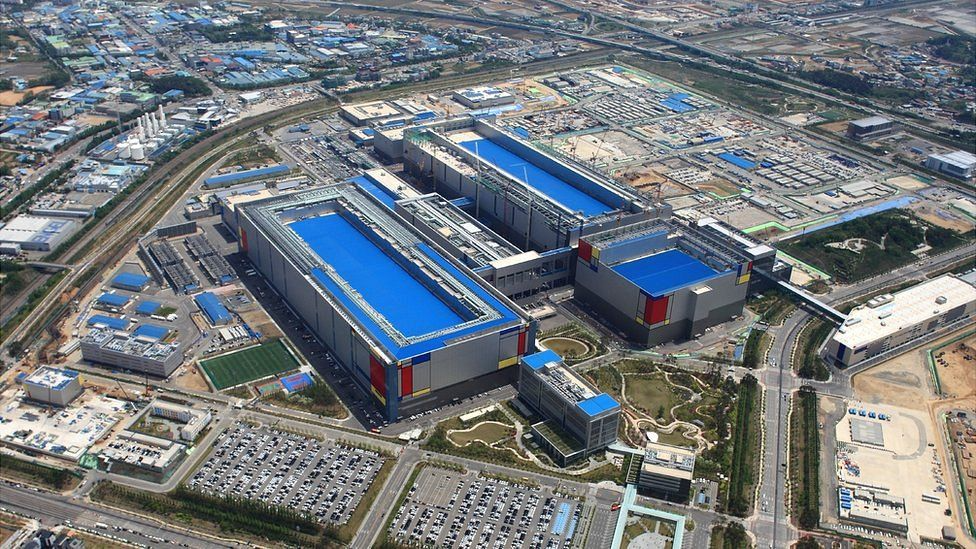Samsung Electronics, the South Korean tech giant, has announced that it plans to invest approximately $17 billion into its home country’s mega chip-making project, in a move that could help the firm regain its title as the world’s largest memory chip maker.
The announcement came just a few months after Samsung lost its top spot to Taiwan Semiconductor Manufacturing Company (TSMC) in terms of market capitalization. This investment will enable Samsung to expand its production capacity and secure its position in the global semiconductor market.
The plan, which is a collaboration between Samsung and the South Korean government, will see the construction of a new semiconductor plant in Pyeongtaek, a city located south of Seoul. The new facility will produce advanced chips using the latest technology, including 5-nanometer chips and those made using extreme ultraviolet (EUV) lithography.
According to Samsung, the new investment will be used to build infrastructure, including roads, water supply, and power facilities, in the area surrounding the plant. The company also plans to hire approximately 15,000 employees, both directly and indirectly, in the region.
The investment is expected to have a significant impact on the South Korean economy, creating jobs and boosting the country’s technological competitiveness. It is also expected to help the country reduce its dependence on memory chips from foreign suppliers.
The South Korean government has been actively promoting the semiconductor industry in recent years, with a view to making it a key driver of the country’s economic growth. The country’s semiconductor exports reached a record high of $99 billion in 2020, accounting for more than 20% of the country’s total exports.
Samsung has been a major player in the global semiconductor industry for decades, with its memory chips used in a range of electronic devices, including smartphones, laptops, and servers. However, the company has faced increasing competition from rivals such as TSMC and Intel in recent years, and has struggled to maintain its market dominance.
The investment in the new semiconductor plant is part of Samsung’s broader efforts to regain its position as the world’s largest memory chip maker. The company has also been investing heavily in research and development, with a focus on new technologies such as artificial intelligence and 5G.
Samsung’s decision to invest in the new semiconductor plant is also significant in light of the ongoing global chip shortage. The pandemic has led to increased demand for electronic devices, including laptops and smartphones, which has in turn led to a surge in demand for semiconductors. The shortage has had a significant impact on the global tech industry, with companies struggling to secure the chips they need to produce their products.
The new semiconductor plant is expected to help alleviate some of the pressure on the global chip supply chain, by increasing production capacity and reducing reliance on foreign suppliers. This could help to ensure a stable supply of semiconductors, which is essential for the continued growth of the global tech industry.
In conclusion, Samsung’s investment in the new semiconductor plant is a significant development for the South Korean economy and the global tech industry as a whole. The move is expected to create jobs, boost economic growth, and help to secure South Korea’s position as a global leader in the semiconductor industry. It is also likely to have a positive impact on the ongoing global chip shortage, by increasing production capacity and reducing reliance on foreign suppliers. With its focus on advanced technology and research and development, Samsung is well-positioned to maintain its position as a major player in the global semiconductor industry.
